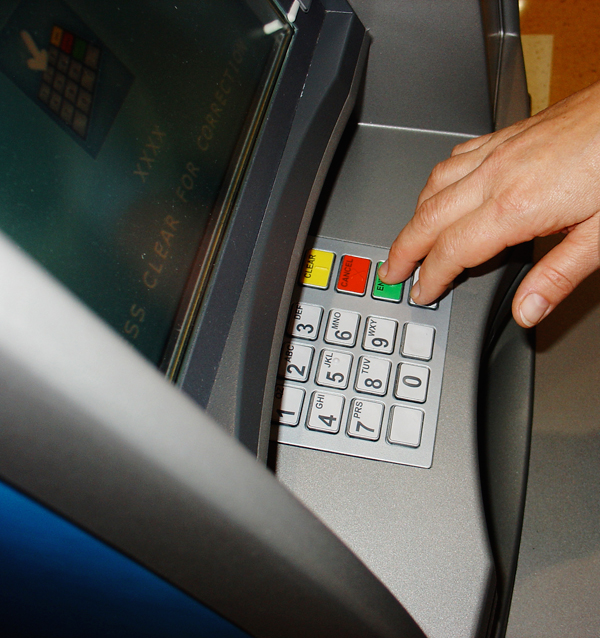Opening of Brighton Metro Bank
Governments and courts seem reluctant to stop bad practices in banking but maybe new players will do their job for them.
Frank le Duc reports

A bank is preparing to open a branch in Brighton. This is unusual because for the past five years or so, banks and building societies have been closing branches. But Metro Bank, a newcomer to the high street, hopes to cash in on disenchantment with the way that existing banks do business.
Having secured planning permission to open at the top of North Street, in the old American Express premises, Metro Bank aims to open its doors next year. It describes itself as the first new high street bank for more than a hundred years. Its programme of branch openings suggests a confidence in its formula.
And that formula seems to be to combine banking’s traditional virtues and old-fashioned customer service with 21st century marketing techniques and the latest technology. Metro Bank promises: “Our model is
• Unparalleled convenience and service
• No product sales
• Seven day-a-week branch banking
• 24/7 call centres with real people answering real questions
“Our goal is to eliminate every stupid bank rule.”
With so many shops and service providers going online and more businesses moving out of bricks and mortar for the virtual world, some wonder whether Metro Bank is swimming against the tide. At the Sussex University campus in Falmer, HSBC recently closed its branch. Only Barclays remains. If any set of customers is web savvy, it ought to be students. But despite the rise of internet banking, the thousands who live and work on the campus still need somewhere to physically take out cash.
One former Sussex student said that HSBC’s presence had influenced his choice of bank when he started at the university. Years after graduating it was still his bank and it was where he turned to first for loans and financial services. Some customers may be fickle but, mostly, banks benefit from widespread inertia. At Sussex, Barclays looks like being the main beneficiary of HSBC’s decision to pull out before the start of the new academic year.”
LOCAL FLAVOUR
Banks and, in particular, building societies had a strong local flavour for many years. The Brighton and Sussex Building Society was a case in point. It became the Alliance under the leadership of Lewis Cohen, a prominent Labour councillor on a Tory-dominated Brighton Council. In 1965 he became Lord Cohen and in 1985 his mutual became the Alliance and Leicester. It demutualised in 1997 and was taken over by the Spanish bank Santander in 2008.
The picture in Brighton and Hove reflected the national picture, with a profusion of branch openings during the property boom and especially after the financial reforms of the 1980s. Then came mergers and takeovers and building societies converting themselves into banks. Rationalisation followed and, with it, branch closures and job losses. Brighton and Hove has fewer than 50 bank branches now and barely half a dozen building society branches. Ten years ago there were more than 60.
This process of decline accelerated during what became known as the credit crunch when banks appeared to stop lending. At this time banks even went bust. Lehman Brothers was the biggest failure. Northern Rock in Britain sent shockwaves through the system. The government spent billions propping up institutions that were said to be too big to fail.
We are still paying the price. But the reality is that the banking crisis was one symptom of a wider set of economic problems.Even so, banks and bankers have gone from being pillars of respectability to pariahs in the
eyes of many. The former RBS chief executive Sir Fred Goodwin was vilified. And banking became a dirty word. Yet banks are vital for the economy. They help keep the money circulating much as the human body needs blood to circulate if it is to survive.
In his criticisms, Business Secretary Vince Cable drew the distinction between retail or high street banking – handling people’s savings and loans – and investment or casino banking. The latter had increasingly relied on complex financial products that few people understood. Most of us have felt the consequences. Mr Cable is one of the few who can claim to have seen it coming like a modern-day Cassandra.
BAD PRACTICES
As the fall-out settles, there have been changes but too few to satisfy the most trenchant critics. Metro Bank is cited as an example of the market at work. As is the growth of internet banking. Regulators are requiring banks to operate with bigger safety margins – or capital requirements. One side-effect is to make it harder for new entrants like Metro Bank to bring competition to the sector. There are fears that as a consequence some bad practices are being protected.
But First Direct, part of HSBC, is trying to set itself apart from the high street banks, as is the newly revived TSB brand – the result of Lloyds being forced to sell branches. Barclays in Brighton is part of an experiment to understand customers better.
The Bank of Dave, featured on Channel 4, capitalised on disenchantment with the familiar firms in this sector. And Virgin has also spotted an opportunity to bring its own approach to a tarnished trade. And they are all a few mouse clicks away, hastening the demise of a bricks and mortar presence.
In Brighton and Hove old bank branches have been turned into, among other things, a restaurant and a chip shop. Some might even consider these to be a better use of the buildings in question. They have a grandiose style that speaks of a confidence and status belonging to a bygone era. Newer branches share their look with the profusion of high street bookies. Mr Cable is concerned that they share a common culture too.
Metro Bank has attracted account-holders by going back to basics. It may use modern design, 21st century technology and the latest marketing techniques. But its values sound old-fashioned in branches which look light and airy and people-friendly. It believes that its traditional customer-focused culture sets it apart from its rivals. The test will come when its Brighton branch opens next year.




















